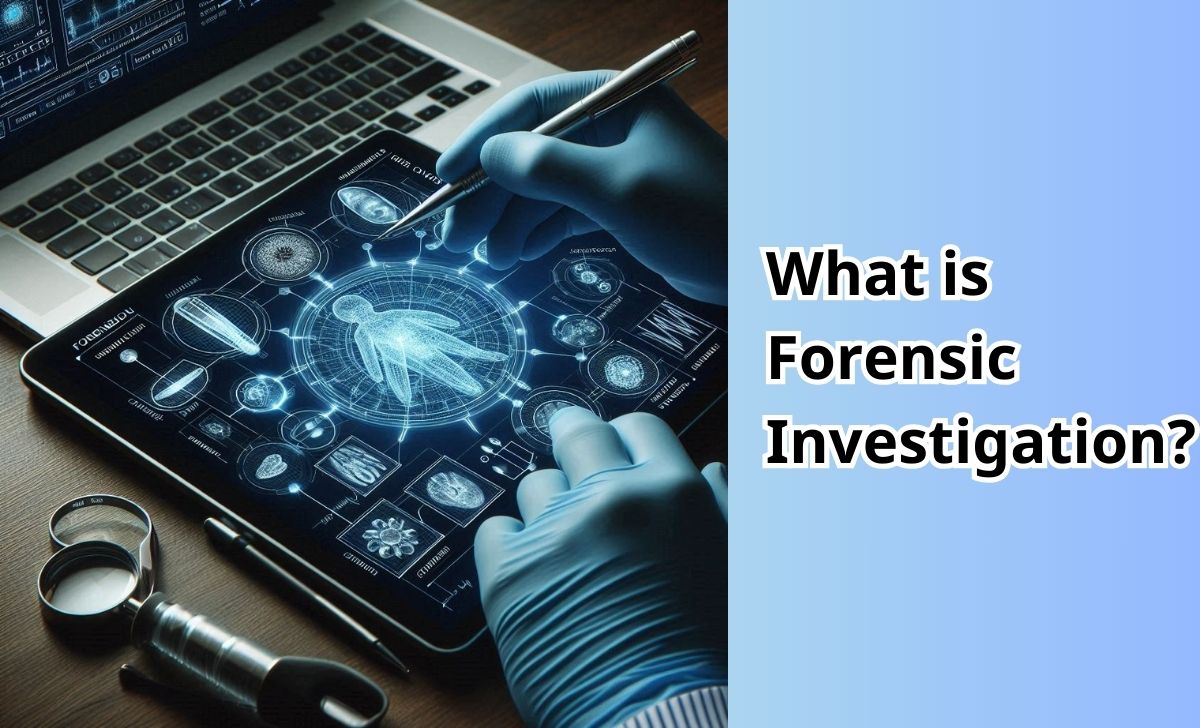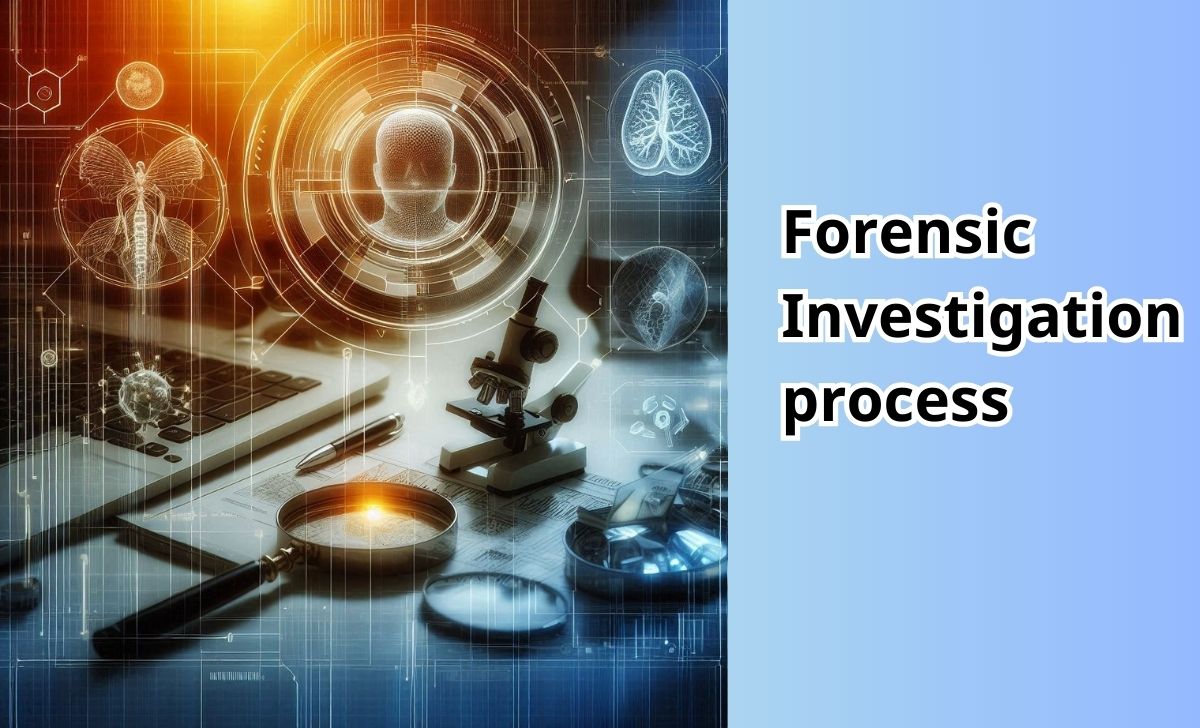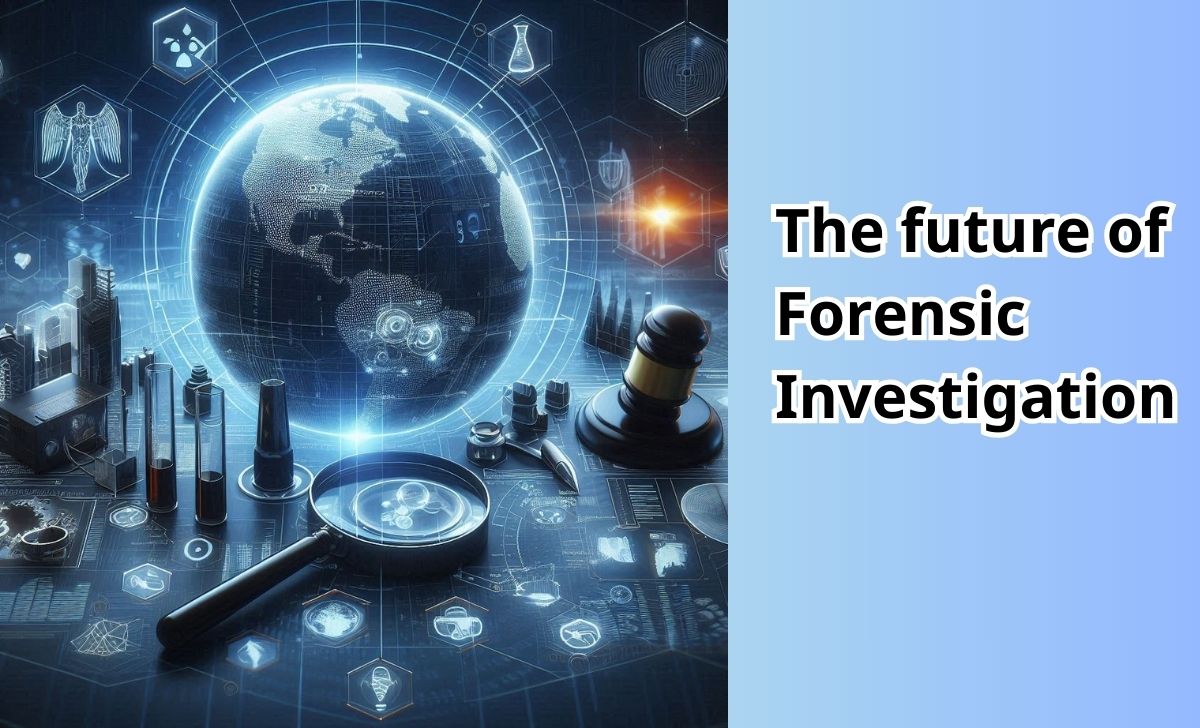Forensic Investigation is a specialized field of science that plays a crucial role in solving criminal cases. It involves the collection, analysis and evaluation of physical evidence to serve justice.
So, what exactly is forensic investigation and what tools are used in this process? Let’s explore it in detail with AZCoin through the following article!
What is Forensic Investigation?

Forensic Investigation, also known as forensic science, is a scientific process used to collect, analyze and evaluate evidence related to an event or case.
The goal of forensic investigation is to provide clear and reliable evidence that can be used in court to either support or refute a legal argument. This field is not only limited to criminal offenses but also extends to various other domains such as digital investigation, medical forensics and cybersecurity.
Major areas in Forensic Investigation
Here are some of the major areas within Forensic Investigation:
- Digital Forensics: This area focuses on collecting and analyzing data from digital devices such as computers, mobile phones and servers. It is a vital field for investigating cyberattacks, data theft and high-tech crimes.
- Criminal Forensics: This area involves the collection and analysis of evidence at a criminal crime scene, including fingerprints, DNA and other traces, to identify the perpetrator or victim.
- Medical Forensics: This area uses medical techniques to analyze the cause of death or injury in criminal cases. Medical forensics is often applied in cases involving violence or unexplained deaths.
- Cyber Forensics: A branch of digital forensics, cyber forensics focuses on tracking, detecting and analyzing criminal activities occurring in cyberspace. This includes tracking hacking activities, malware and online fraud.
Besides learning about Forensic Investigation, you may also want to explore other prominent projects like What is a security breach, What is an Exploit attack, What is Vulnerability,…
Forensic Investigation process

Forensic Investigation follows a strict and scientific process to ensure the integrity and reliability of the evidence. This process includes:
- Step 1. Identifying the issue to be investigated: The first step is to identify the issue or event that needs to be investigated, setting specific goals for the investigation.
- Step 2. Collecting and preserving evidence: Evidence collection must be done carefully to avoid loss or destruction of evidence. Preservation measures are taken to ensure that the evidence remains unaffected during the investigation.
- Step 3. Analyzing and evaluating evidence: This step involves using specialized tools and techniques to analyze and evaluate the evidence. The analysis results will help determine critical information related to the case.
- Step 4. Reporting investigation results: After the analysis, the results are compiled and reported in a detailed and clear manner. This report may be used in court or to support further investigation activities.
- Step 5. Presenting evidence in court: Finally, forensic investigators present the evidence in court, clearly explaining how the evidence was collected and analyzed to either support or refute arguments in the case.
Tools and techniques used in Forensic Investigation
To conduct Forensic Investigation effectively, investigators often use a range of modern tools and techniques:
- Specialized software: Tools like EnCase, FTK and X-Ways Forensics assist investigators in collecting and analyzing data from digital devices.
- Data recovery techniques: These techniques help recover deleted or corrupted files, providing crucial evidence in the investigation process.
- Malware analysis: Tools like IDA Pro and OllyDbg are used to analyze malware, helping to identify the origin and operation of malicious software.
The role of Forensic Investigation in information security

Forensic Investigation plays a critical role in protecting information and preventing cybercrime. Forensic investigators can detect and identify security vulnerabilities, helping organizations improve their information protection measures.
Additionally, Forensic Investigation assists in gathering evidence to prosecute cybercriminals, protecting the rights of individuals and organizations. Moreover, you can check out the list of the best crypto exchanges 2024 here to trade safely.
Limitations of Forensic Investigation
Despite being a powerful tool, Forensic Investigation also has certain limitations:
- Privacy issues: The forensic investigation process can infringe on the privacy of individuals involved, especially in digital investigations.
- Accuracy and reliability: Forensic evidence must be collected and analyzed carefully to ensure accuracy and reliability. A small mistake can lead to inaccurate results, affecting the entire case.
- Challenges in keeping up with new technology: As technology evolves, so do cybercrimes. This poses a significant challenge for forensic investigators in keeping up and using the latest technologies.
The future of Forensic Investigation

With the continuous advancement of technology, Forensic Investigation is also making significant strides:
- Artificial Intelligence and Machine Learning: These technologies are gradually being integrated into the forensic investigation process, helping to automate and improve the accuracy of the analysis process.
- Development of advanced analytical tools: New tools are being developed to address increasingly complex security threats, enabling forensic investigators to perform their tasks more efficiently.
- Integrating Forensic Investigation into overall security systems: Forensic Investigation will become an essential part of an organization’s overall security strategy, helping to detect and prevent threats before they become serious problems.
Conclusion
In summary, Forensic Investigation is a crucial field in safeguarding information security and combating cybercrime. AZcoin hopes this article has provided you with a better understanding of it and helped you plan for the future.

I am Louis Dang, living in Ottawa, Canada. I am currently working as a trader for AZCoin company, with 7 years of experience in the cryptocurrency market, I hope to bring you useful information and knowledge about virtual currency investment.











